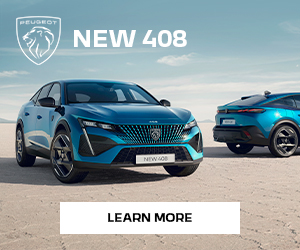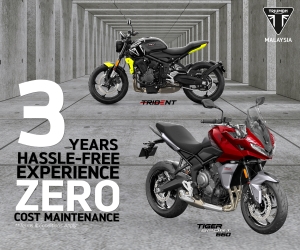Who Should the 3rd National Carmaker Be?
I have to be honest, when I first heard the government was planning a third national car project, I thought it was a ruse. Surely, proposing something like that while the future of the automotive industry was bleak was a show of strength to the manufacturers in the country. The message might have been, “y’all better watch out, we could change the rules and hurt you unless you play ball with us.” In an industry worth billions of ringgit, it was probably the fastest and easiest way to assert leadership.

But now, as more promises, facts and rumours about the 3rd national car project come forth, we have to wonder if there really is a case for it. Logically speaking, in 2018, starting a car company from scratch is going to be a silly strategy, whether or not the company uses public funding. So, let’s assume this isn’t the strategy. Let’s assume this 3rd national car is going to be something to take seriously. After all, demand for cheap, reliable cars is at an insanely high level. Demand for premium car brands too is at an all time high. What are the options? Here are my uneducated guesses:
Take on Perodua with Suzuki or Datsun technology
Perodua is an excellent company that have delivered exactly what Malaysians need out of cars for decades now. It runs a tight ship, and continues to expand its product portfolio and market share cautiously. No one has much to complain about Perodua, except that they have no effective competition, which isn’t even their fault.
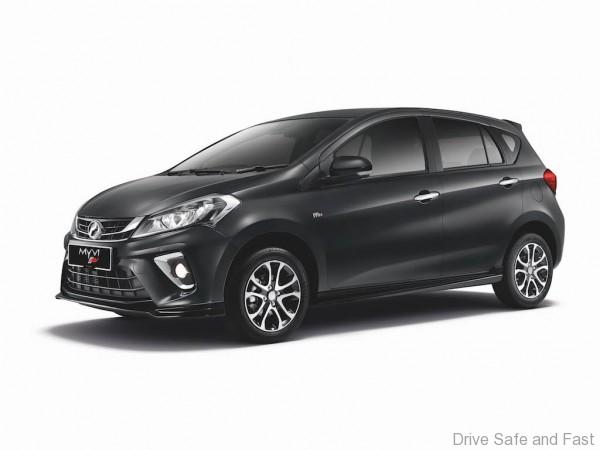
It’s clear that Perodua’s products are loved by Malaysians. We have no alternative to it.
Globally, few companies can really compete with what Perodua have to offer – Japanese technology and build quality with Malaysian pricing and styling. But there are two brands whose tech and build quality may fit the picture – Suzuki and Datsun.
Suzuki exited the Malaysian market 2 or 3 years back, but instead of becoming a technology partner with Proton, kind of just left them with the Ertiga and some dealers. The plan to use Suzuki as a technology partner to Proton was during or around the time Tun was Chairman of Proton, so having it executed as a third national car company instead could be a very real possibility. Just follow in the footsteps of Perodua and try to make up for 2 decades of experience.
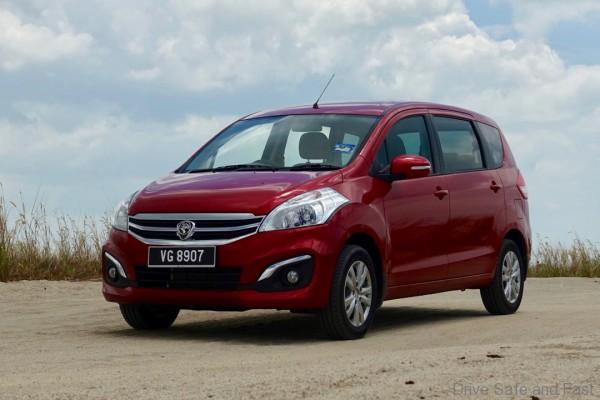
The Ertiga – the only car from Proton that competes directly with Perodua. Do the Iriz and Saga have the scale and QC of the Myvi and Bezza? Until then, most cannot consider them direct competitors.
In Japan, Daihatsu and Suzuki are huge rivals, both fighting for a dominant share of the Kei car and compact car segment. It could be exciting to see how that fight unfolds in Malaysia.
What about Datsun? You probably think Datsun is just what Nissan used to call themselves, but ACTUALLY no. Datsun was relaunched in 2012 as a budget-friendly brand of the Renault-Nissan Alliance. They make cars for the Indian, Indonesian, South African, and Russian markets using simple, reliable, PROVEN Nissan and Renault parts.
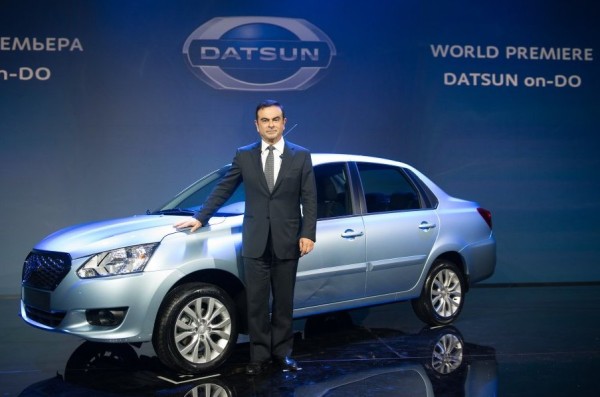
Tan Chong Motor, a born and bred Malaysian company, deserves this shot at regional dominance
If we look at the market before Proton’s arrival, Tan Chong Motor was one of the largest players, undeniably. They produced, distributed and serviced Nissan cars and Malaysians loved the stuff. Just about every Malaysian family has come to own or experience the Nissan Sunny 130Y.
Given how TCM and its related companies have such strong roots in South East Asia, giving them full permission to mould a new brand using Datsun technology could give them the huge success they have been due for decades. TCM is already handling other alliance brands like Infiniti and Renault. With economic protection, Datsun would thrive here under them.
In India, the Datsun brand fights Maruti Suzuki for a slice of the mass market pie.
Take on Proton with Chinese technology
We all know Proton’s partnership with Geely is going to give it an edge over many of its Japanese and European rivals in terms of scale, price and technology. Whenever a situation like this happens, it’s important to introduce some competition. When Proton got away with it competition free using Japanese technology in the ‘90s, they became an unstable, disorganised, and uncompetitive limp giant. Geely has many rivals in China, perhaps inviting them to come play with Proton using the ownership structure of Perodua might be a good idea.

Malaysians haven’t really experienced what Chinese brands have to offer. Weststar Maxus is a good place to start
Maxus and Haval already have a CKD presence in the country for passenger SUVs and MPVs. In China, these huge companies (SAIC, for instance) have the kind of portfolio and scale to take Geely on. The right structure here would give Proton some tough competition.
Take on the premium segment with fresh electric technology
This, to me is the least likely to happen, but I believe there is a case for it. Right now, there are just 3 locally-produced premium players in Malaysia. Mercedes-Benz, BMW Group and Volvo Cars. Let’s take the most successful brand of the lot and look at the numbers.
Last week, Mercedes-Benz Malaysia (MBM) announced that they had sold 10,143 cars to date for 2018. We know half way through the year, they had sold 6,790 cars. Meaning that during the tax holiday (June, July, August) they sold some 3,353 cars. Those are the facts, as far as I can tell.
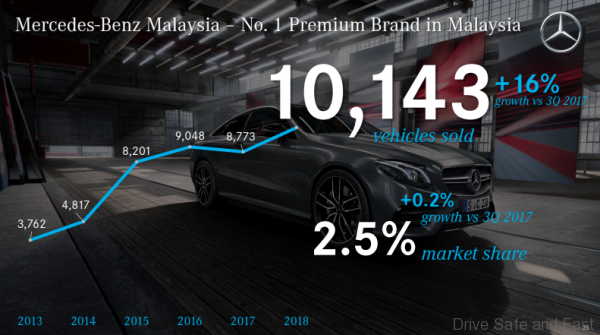
As happy as I am for their success, this is money the country can’t afford to keep losing
Now we make some conservative assumptions. MBM makes a few models locally. Let’s assume their best selling model is the cheapest one they make locally, the C180. That thing costs RM216,000. Let’s ASSUME CONSERVATIVELY that all 3,353 tax free cars are C180s. That’s RM216,000 X 3353.
RM724,248,000
Seven hundred and twenty four million ringgit in one tax-free quarter. Of course, they’ll keep reminding us that they’ve invested over RM1 billion here in the last 15 years.
Now I don’t condemn or condone any of this. It is what it is. BMW and Volvo just don’t like giving us as many numbers to play with quite as much, so if anything I tip my hat to MBM’s openness and honesty with the media and public.
But it does show that the premium segment is where the real money is. It’s where the real money exits the country. So, if we had some sort of economically protected Malaysian-branded alternative, we could help plug that hole.
Would Malaysians spend big bucks on a Malaysian flavoured Audi? I doubt it. But what about a Malaysian flavoured Lynk & Co? What about a Malaysian flavoured Tesla? These are new companies that show enormous promise. They were born with a fresh set of ideas on how to play the car game. Perhaps adopting them early into our own ecosystem could be worth it.
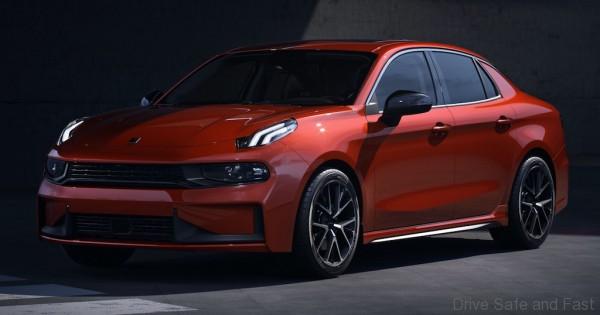
Lynk & CO builds cars on the CMA platform. Volvo already locally assembles the XC40 (also CMA) for the entire region.
All in all, I still think the other two possibilities show more business promise and demand fewer risks.
What do you think?







